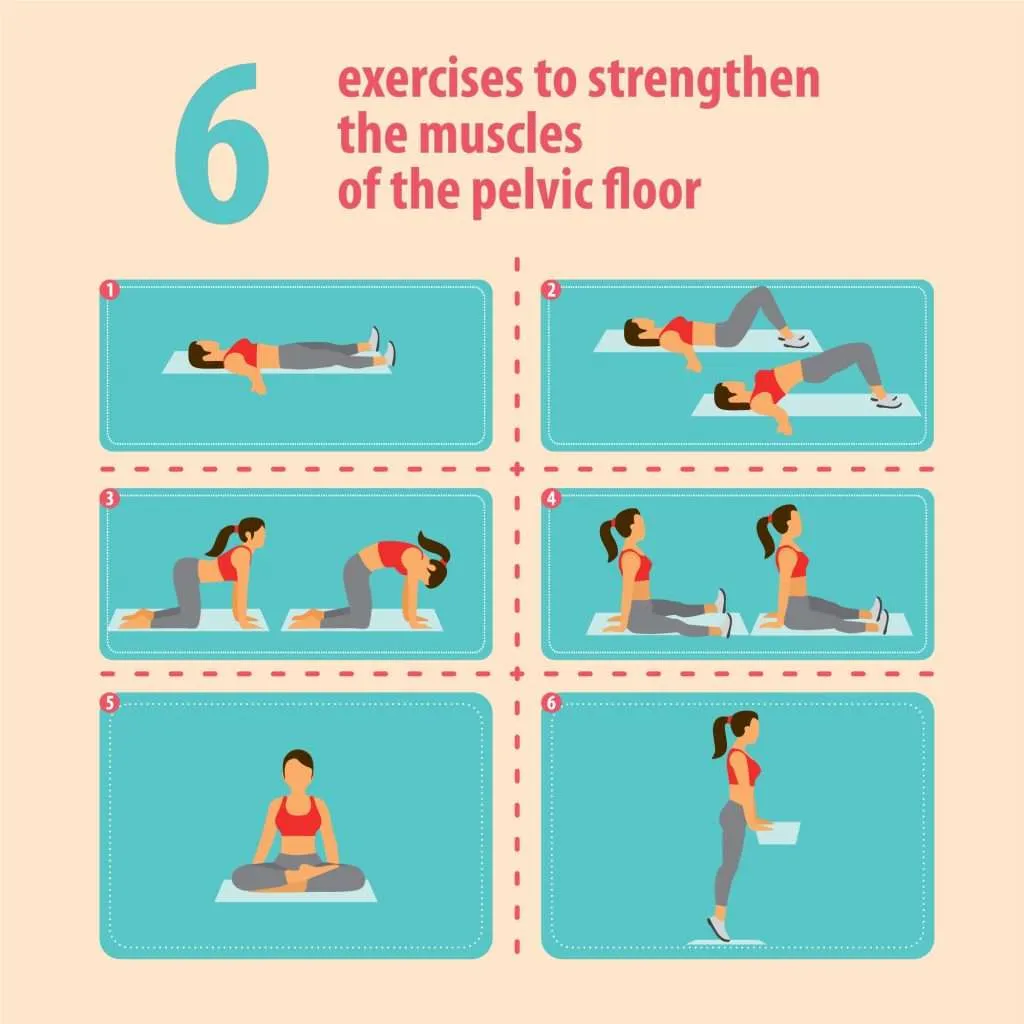A Quick Exercise From A Pelvic Floor Physiotherapist That Boosts Strength | Incontinence Treatment
Recent research by physiotherapists has highlighted the positive impact of a quick and simple exercise on pelvic floor strength which we will discuss in our latest blog.
This one-minute exercise (which is a series of muscle contractions and relaxations) can greatly enhance bladder and bowel control, mitigate the risk of organ prolapse, and alleviate ongoing discomfort.
While the benefits appear to be significant over time, how often should these exercises be performed, and are they suitable for everyone, will be explored.
We will also open up to a broader discussion on the importance of understanding and maintaining pelvic floor health for those interested or currently dealing with pelvic health concerns of their own.
So, if you have an interest in strengthening your pelvic floor, please read on.
Understanding Pelvic Floor Health Physiotherapy

Pelvic floor health plays a critical role in ensuring normal bodily functions such as bladder and bowel control, and its importance extends to both men and women.
A healthy pelvic floor has substantial benefits, including prevention of organ prolapse, alleviation of pain, and the ability to maintain bladder and bowel control.
Misconceptions surrounding the importance of pelvic floor health can lead to functional weakness in this crucial area of the body, resulting in weakened muscles that can cause issues such as incontinence.
Factors such as pregnancy, child birth, and aging can also impact the strength of these muscles.
Awareness of pelvic floor health and its importance is necessary for everyone (not just women), as it greatly contributes to your overall health and wellbeing.
Understanding the importance of your pelvic floor is the first step towards maintaining good health.
Exploring Treatment Options
Having understood the significance of pelvic floor health, we can now discuss various treatment options aimed at enhancing and maintaining the strength of these essential muscles.
Advanced therapies such as pelvic floor muscle training, often guided by ultrasound or MRIs, have proven quite effective. This targeted approach can dramatically improve bladder and bowel functionality and greatly reduce the risk of organ prolapse.
Alternative remedies also play a vital role in treatment. These include the use of internal weights for resistance training and the integration of core muscle training into overall wellness routines.
It’s worth mentioning that a combination of these options can provide the most thorough and effective treatment for bolstering pelvic floor strength, and a pelvic floor specialist can provide you with a detailed and tailored treatment plan.

The One-Minute Exercise Solution
Women can complete this sitting exercise, which is also known as the pelvic floor exercise (PFX), in one minute. Tighten the area surrounding the back passage as though you’re attempting to keep wind in.
Repeat this three times: squeeze for ten seconds, then release it and relax for another ten. This will take six minutes a day to complete, and you will need to do it six times a day.
You can do them in your car or while seated at a computer. We suggest giving this a go for a week and see what level of improvement you notice.
Next you will work out for seven minutes a day instead of six during the second week. Squeeze your bladder quickly and firmly for a single second at a time. While doing this, remain motionless.
You will add one more minute to your routine if you do this twice a day before using the restroom.
Another thing to try is cutting back on bathroom visits. Drink after using the restroom; try to limit your breaks to once every two hours.
Identifying Who Needs Incontinence Treatment
Recognising the need for pelvic floor treatment is essential, especially for certain demographics such as pregnant women, postnatal women, and individuals experiencing perimenopause and menopause.
Pregnancy preparation should involve strengthening the pelvic floor muscles, as these muscles undergo significant strain during childbirth. Postpartum recovery care must include a regimen to regain muscle tone and function.
Aging concerns also focus on pelvic floor health. As women approach menopause, hormonal changes impact muscle strength, necessitating proactive measures for maintenance.

We recommend that anyone experiencing changes in bladder or bowel function, discomfort, or a decrease in sexual satisfaction due to aging or pregnancy should seek pelvic physio therapy evaluation.
Understanding the need for pelvic floor strengthening forms a community of proactive health management which is openly accepted and embraced for the positive and life changing benefits it brings.
Lifestyle Changes & Incontinence Treatment Advice
To ensure excellent pelvic floor health, we recommend incorporating certain lifestyle changes and following expert advice.
- Healthy habits, such as maintaining ideal body weight and staying hydrated, can greatly strengthen the pelvic floor muscles.
- Additionally, avoiding chronic constipation through a balanced diet and engaging in regular physical activity can further aid in preserving pelvic floor health.
- A healthcare professional can provide tailored exercises and routines that specifically target the pelvic floor muscles. Ensuring the correct technique is used is essential for the effectiveness of these exercises.
Summing It Up...
To sum up, a simple one-minute exercise can greatly enhance pelvic floor health, reducing the risk of organ prolapse, bladder and bowel issues, and associated discomfort.
Research shows that this beneficial exercise can decrease incontinence risk by up to 70%.
By incorporating this exercise into daily routines and adopting recommended lifestyle changes, individuals can take active measures to maintain their pelvic health, emphasising the crucial role of proactive self-care in overall wellness.
Please book appointment here or call us on (03) 4821 5023 if you have questions and want to learn about pregnancy physio – book in for an assessment tailored to your care, needs and well-being.
Our North East Melbourne metro based physiotherapy clinic is open six days a week and you can book your appointment online for convenience.

